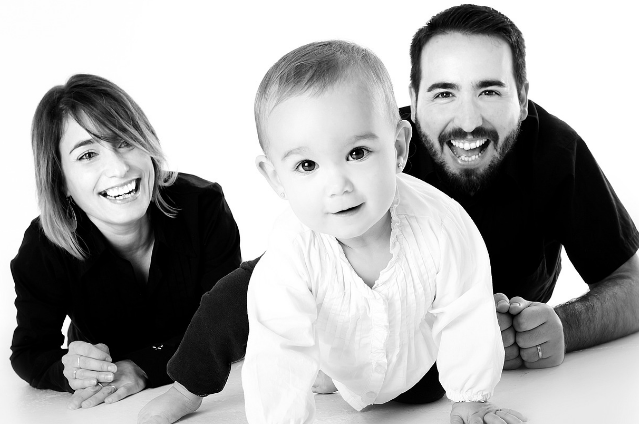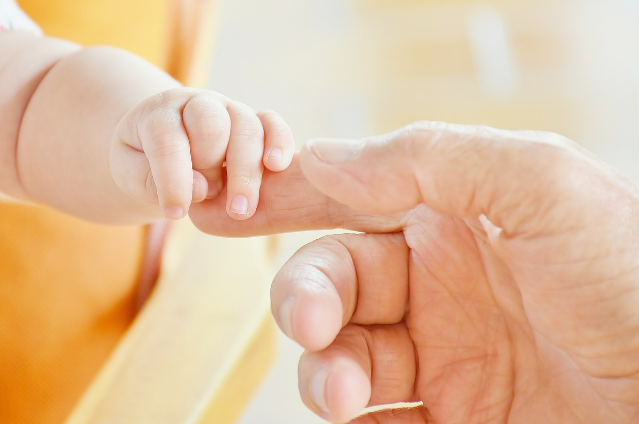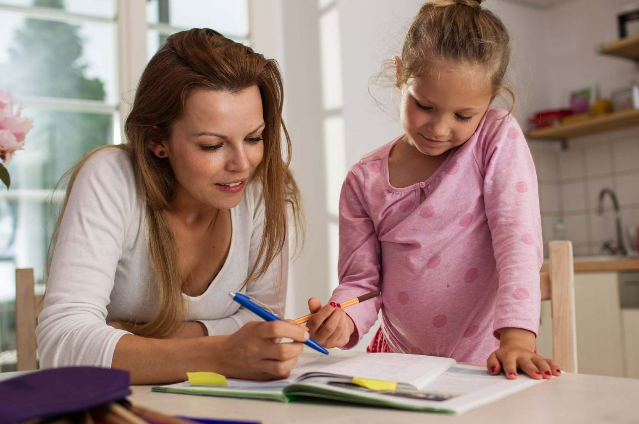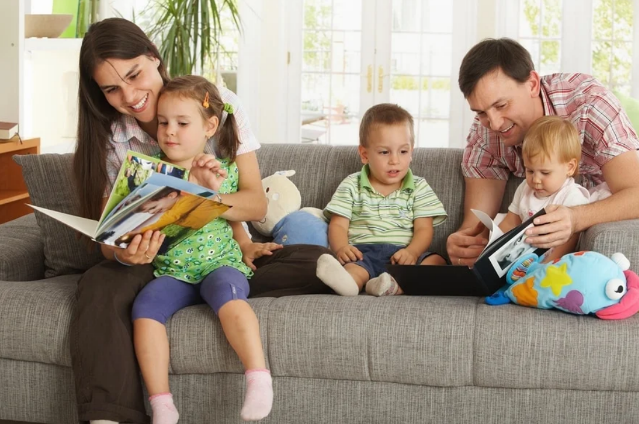'Unexpressed emotions will never die. They are buried alive and will come forth later in uglier ways.' - Sigmund Freud, Father of Psychoanalysis.
Introduction:

Parents give birth to a child. Parents socialise the child with this environment. Parents are the first ones whom we form a circle with. Our values are largely drawn from our parents. The infiltration of behaviour along with the genetic correlation also takes place. One cannot deny the fact that parents do play a major role in the shapening of the behaviour of a child. Though all parents undeniably work for the welfare of their kids but there are different circumstances which leads to different parenting styles. The paper here attempts to explore both positive and negative facts associated with a particular parenting style. Understanding the psychology of the child gets easier when we understand about the parenting styles.
To mention it in the beginning itself, the article is not demanding for revolutionary change in the parenting behaviour. To put it simply, as all the sociological roles need a revamping so is the case with parenting. Parenthood is an important journey in the lives of people. It is not less than the beginning of an epoch in somebody's life. Hence, roles which are of such paramount importance need to learn, re-learn and un-learn things.
Parenting holds a great diversity among families. The different cultural backgrounds cause different rearing pattern of children. Although, children can grow in all types of family environment still the character socialization gets different owing to changes in the parenting strategy.
Parents are generally affected by the social norms, values, language, behaviour. Every parent has a altogether different approach in how they interact and guide their children. The conduct, values and principles of a child are decided through this bond. Parenting style can also be situation dependent. Let's discuss about some of the parenting styles that have grouped into some psychological constructs.
Authoritarian Parenting:
Parents of this style have a very rigid framework. Their communication with the child is one-way. In this situation, the parent established strict rules that the child obeys. The rules are either clearly defined or even blur sometimes. There is no space for dialogue between the parent-child relations. Parents of such category hold extremely high expectations from their child and they want their children to uphold them with the least possible errors. Mistakes in such parenting lead to tough punishments for children. Such parents are usually less-pampering towards their children and have limited flexibility.
Children who grow up with such parents are generally well-behaved as they have been trained that way. They are precise and accurate in their each and every step. They always require precise instructions to reach towards a specific goal.
This parenting style can develop both higher levels of aggression but may also be shy or maybe they become like someone who is undecisive. Their aggression is uncontrolled as they are never taught how to control it. They have poor self-esteem. Unexpressed emotions with their parents later leads to a situation where these students rebel against authority figures as they grow older.
This type of parenting requires utmost patience from both the sides. Disciplinary methods are used a way for charging punishment. Such children always know how to self-regulate. They can manage their negative emotions effectively all by themselves which leads them to develop a sound emotional health.
Permissive Parenting:

Parents falling in this category tend to be warm, nurturing and usually have minimal or no expectations. They impose limited rules on their children. There is open communication. Parents allow their children to figure out themselves. Such parents rarely touch hands of discipline on their children. They act more like friends than parents. Limited rules can lead to the development of some bad habits in the children which can later lead to serious health problems in the child. The child has a lot of freedom to decide his or her habits and working patterns. Freedom to such extent can lead to some negative habits as their is lack of moderation in the parenting behaviour. Such children have self-esteem and have good socialization skills. Yes, they are impulsive, selfish and temperamental too.
Uninvolved Parenting:
Parents in such category normally remain out of the way of their children. In such a case, the children are given a lot of freedom. Parents fulfill the needs of the child while at the same time still being detached from their children. They communicate on a very nominal scale with their students and they don't have a particular disciplining style. They tend to offer a very low nurturing and tend to have least expectations from their child. Such children become self-sufficient in their course of upbringing. Such children might have trouble in controlling their emotions, weak coping strategies and difficulty in getting along with nurturing social relationships.
Impact of Parenting Style on Early Childhood Learning:
In the field of education and psychology, parents play a very dominant role on child's learning and development. The findings of a particular study has revealed that the parental style is positively related with the child's learning outcomes. Parents mediating their roles in the life of a child is found to develop a warm and affectionate relationship with their child. Lesser mediation roles of parents have led to the development of coercive patterns in the behaviour of a child.
Researchers have always focused on the role of a mother in the development of a child's behaviour while it has already been acknowledged that the role of a father is also very critical in the development of a child. Role of parental involvement in the education of children has become a central topic. Many school reforms now aim to promote a inclusive parent-student relationship in learning. Improvement of early-life practices can lead to the encouragement of healthy parenting practices.
Family involvement refers to parents active participation in a variety of activities that encourage their child's learning and development. There are various programs that teach parents as to how they can work and spent time with their children. It is said that timely intervention of parents leads to better results for the children. School administration have now come up with activities where the parents are also encouraged to participate with their students in various competitions and events. For the cognitive development of a child, parent involvement in learning and routine home activities is critical. The activity of a parent should be designed in a manner that it interests the child. Parents must engage with their children about the experiences. Economic disadvantage also affects parents involvement. Parents with less education are less responsive to their children and provide less learning stimulation.
Every parent wishes best for their child especially when it comes to their intellectual abilities. Many parents are unaware that education and caring for their children in a overly restricted manner cause make them lose confidence and ambition. A good relationship with the parents encourage the child to do better in school even. Early childhood and early school years have been recognized as crucial to adult well-being and success. The concept of parental participation is multi-dimensional. It helps to develop a positive learning outcome at home. Parent-school communication about the school programs also measures the progress of the child. Voluntary participation of parents in school is also well-recognised. Parent and school communications should also take place about the learning activities of child at home. Parents should be involved in school making governance too. Parents should have a certain sway over the resources of the school.
Sometimes some parents keep on tolerating the behaviours of the child without enquiring deep down into the causes of the behaviour. The child's behaviour may be harmful to the environment still it is tolerated as the parents find themselves powerless to make their child adhere to the rules well. Some parents directly impose the rules on a child without questioning them. The authoritarian pattern have continued to fail still these parents have the mindset of having the most parental control. They use both verbal and non-verbal sanctions to penalize the child's unwanted behaviour.
Parents generally place unrealistic expectations on their children. These are the parents who are resistant to any sort of change and also make swift decisions. But parents should base their expectations based on the abilities of the child. Parents should be aware of their child's feelings, thoughts and attitudes. The role of these parental attitudes and actions can have an impact on their children's personality traits and adaptation to their surroundings. Growing up with permissive parents make the children uninterested in other people's feelings and thoughts. They could be lacking in social skills. Anxiety, sadness and uneasiness may be experienced by the children of authoritative parents. Furthermore, they are unable to communicate effectively. They are generally introverted people.
Parents should also understand the importance of skills, abilities, knowledge and behaviours that are particularly important to children. Parents must identify desirable learning outcomes for children at various stages of development using crucial aspects of child's development. Physical well-being, social and emotional development are much essential when parents raise their children as it has a big impact on their development and learning.
Researchers have been constantly attempting to prove that parenting style has a direct relationship with children's academic achievement. Children's of authoritative parents tend to have the best outcomes while that of permissive parents have the worst outcomes.
Parenthood is both rewarding and a challenging task. New parents must deal with the physical and financial demands of caring for a child as well as the various lifestyle changes that occur due to the additional duty and lead to negative consequences such as strained spouse relationships and social isolation. The parent being confident in onself and skills of a parent was called parental self-efficacy.
Parents belief in their ability to influence their child in a health and success promoting manner has emerged as a key treatment for the parent and child well-being. A parent's job is never simple rather it's extremely complex. Parents with high level of efficacy feel that they can more positively influence their child's development and behaviour. They feel that they are more responsive to their child's needs. Parents with low self-efficacy have higher rates of depression. Things such as academic achievement, time spent on homework, positive attitudes towards school and lower rates of high school drop-outs are all favourably associated with parental participation. Parents with a better socio-economic background are much more interested in the cause of the studies of students. This involvement nestles some really good habits and reduced absenteeism. With increase in competitions in the academic arena, the parents are always on the search of options such as hiring a tutor or supervising their child's homework in order to help their students with their academic curriculum. Children's who have poor relationship with their parents exhibit greater deviant behaviour. This may also be linked to rejecting and inconsistent parents.
Parenting can be defined as a series of actions and interactions between a parent and a child that had the potential to affect one another until the child reached adulthood. Parents need to support their children both physically and emotionally.
The Impact of Parenting on Child Development:

Every parent wants to best nurture their child. But they largely find themselves failing in the efforts. It can be said without any doubt that development of a child has to do much with the parenting style. Parents hold a very important position in the lives of young children. Not only parents but also caregivers largely impact the psychology of the child. Childrens are always dependent on their parents for both financial and psychological needs. But sometimes, parents lack some information and are astrayed in the path of becoming a good parent.
Effective Parenting Practices:

Parenting may take different styles but parenting practices work well across different family settings. Parents can support their child's healthy development.
- Associating with the behavior of the child for a better response.
- Parents should be warm towards their kids while at the same time should be sensitive to the demands of the child.
- They should share proper routines and household rules.
- Sharing books with children and engaging in a healthy conversation with their kids.
- Discipline should be incorporated without harshness.
Elements of Effective Interpretations:
Just as childrens need support. So are the parents in the need of some effective mechanism which can help them to become a much more effective parent. Some intervention programs which can be easily attended by parents must be enforced. No single approach is ever right for all parents.
- Parents need to figure out which acts or behaviours of them best suits the child.
- The programmes must need the different needs of families.
- Families with multiple needs must be coordinated.
- Parents should hold session with other parents for better understanding of different strands pertaining to the behaviour of a child.
- Psychological distresses should be well addressed in the families.
- Generally, mothers are involved in such sessions. Inclusive settlement cannot be imagined without the extension of paternal services.
Research should be constantly as to what is the most effective method for parents while they are dealing with their children.
Impact of Parent's Attitude and Beliefs on Child's Development:

Image by Iuliia Bondarenko from Pixabay
Generally, parents don't do any sort of research work when it comes to parenting. They just model the way they have been parented by their parents. They generally behave in accord with information that is available about appropriate parenting. Their parenting can be based on the informal advices that has been infiltrated into them through the various generations. Sometimes parents impact their children in negative ways, unknowingly. It happen as they don't always know the impact it will cause into the psychology of the child.
Parents might endorse the feeling of being warm and responsive to children but have difficulty in the expression of these feelings when their child is misbehaving.
It is generally believed that parents influence their children and that's a one-sided interaction while children influencing parents is hardly discussed. Parental warmth together with reasonable levels of regulation can lead to better outcomes. In the European countries, children's development is largely understood and they are very rarely interpreted as rejecting or unloving. Parents should try understanding the cause of their reaction together with their children's reaction. Parents should only adopt a rigid framework when the child's behaviour is going extremely out of line. Sometimes parents gets overstressed due to the deviant behaviors of the child that they react completely negatively and fail to adhere to the lines of socialization.
The socio-emotional development of the child must also be paid attention. Generally, parents believe that their children are absolutely perfect and they are undaunted in almost all situations. But that's not the reality if we relegate it with the period of childhood days. The mothers who are subject to physical or mental abuse by their husbands are not able to convey clear messages to their children. Subsequently, children either lose respect for their mothers or they become extra caring. This also causes the children to pre-mature in terms of handling situations. Parents who trust that their child's course of biological development will proceed in a natural or a healthy way are able to adjust better to their parenting role and are less likely to develop a coercive parenting style. Lastly, researches should also be done considering the perspective of the child. Parent-children conflicts are best solved in cases where children's thoughts and feelings are better able to achieve satisfactory outcomes. Little research has been done as to how father's attitudes affect child development. There has also been research released that the parenting styles of mothers and father's differ in cognition. Generally, it has been going that progressive parenting attitudes are attributed with the personality of a mother while authoritative parenting is much relegated with that of a father's personality. The study of parent cognition, beliefs, thoughts and feelings can expand our knowledge of child development. The emotional climate which surrounds the relationship of a parent with a child must be understood well.
Parenting can mean everything to a child. A positive parents helps the child to develop optimistic attitudes towards life. It also helps them in the process of socialization. A DNA-based measure of genetic endowments does contribute to differences in early development but only toa lesser degree. Financial resources, parental mental health and stability of family students play a major role in the development of a child. Separation from biological parents matters for childhood development across the entire social ladder. Inequality is very well decided way back at the time of match-making of parents. Development process is cumulative in behaviour as a result of which the steps taken in childhood affect the future decisions. Parenting styles adopt different stance depending upon the civilizational values of different societies. Children need consistency in their work. The health of the children is of paramount importance for children. Parents need to find the right match and tool and should use them very wisely to deliver better outcomes. Parents belonging to different socio-economic backgrounds have this one commonality that they all desire a positive relationship with their children. All the parents want to invest time with their children.
Conclusion:
Good parenting is how parenting meets the children's needs according to the cultural standards that change from generation to generation. Development gradually begins and progresses in life. Children require parenting in both positive and negative situations. Parenting gives a child the confidence to face challenging problems. Sensitive and caregiving parenting is much essential for child's development. Emotional regulation is also significant. The child should be reared in such a way that he or she is capable of dealing situations when things go awry. Positive parenting is required for cognitive development. Hostile parenting styles can lead to depression and socio-cultural problems. To sum it all, parenting styles have a much more deeper impact than realized on the behavior of a child. All this shows that approaching parents through a decision-making lend and shaping parent behaviour can definitely pave the way for children to reach their full potential. We need to be their best allies.
. . .
References:
- www.ncbi.nlm.nih.gov.in
- www.parentingforbrain.com
- blog.iadb.org
- ifs.org.uk
- www.cureus.com
- www.psychreg.org
- www.annualreviews.org
- www.child-encyclopedia.com
- www.cdc.gov
- www.footprintseducation
- life-care-wellness.com
- www.frontiersin.org
- www.verywellmind.com




